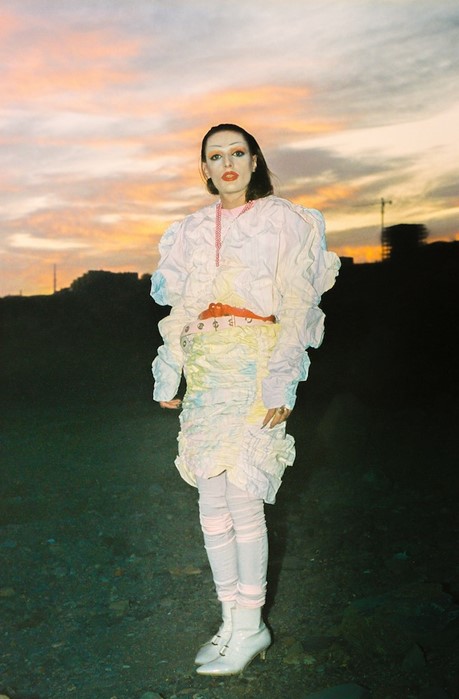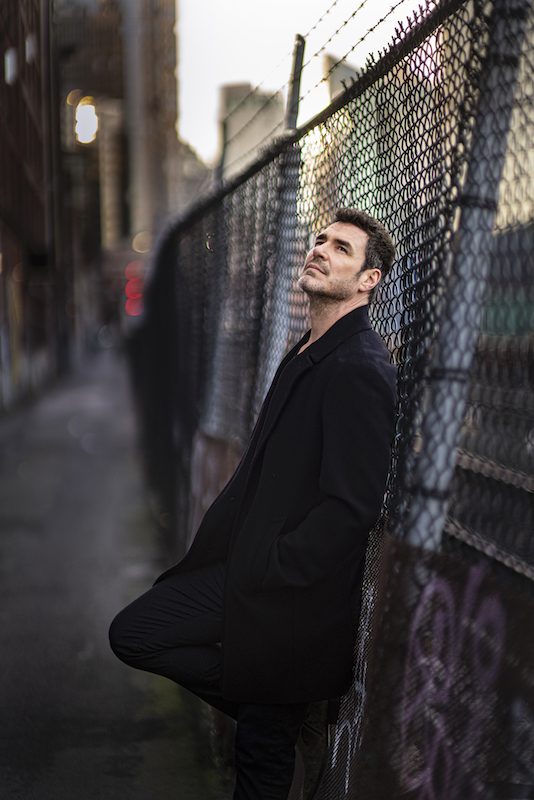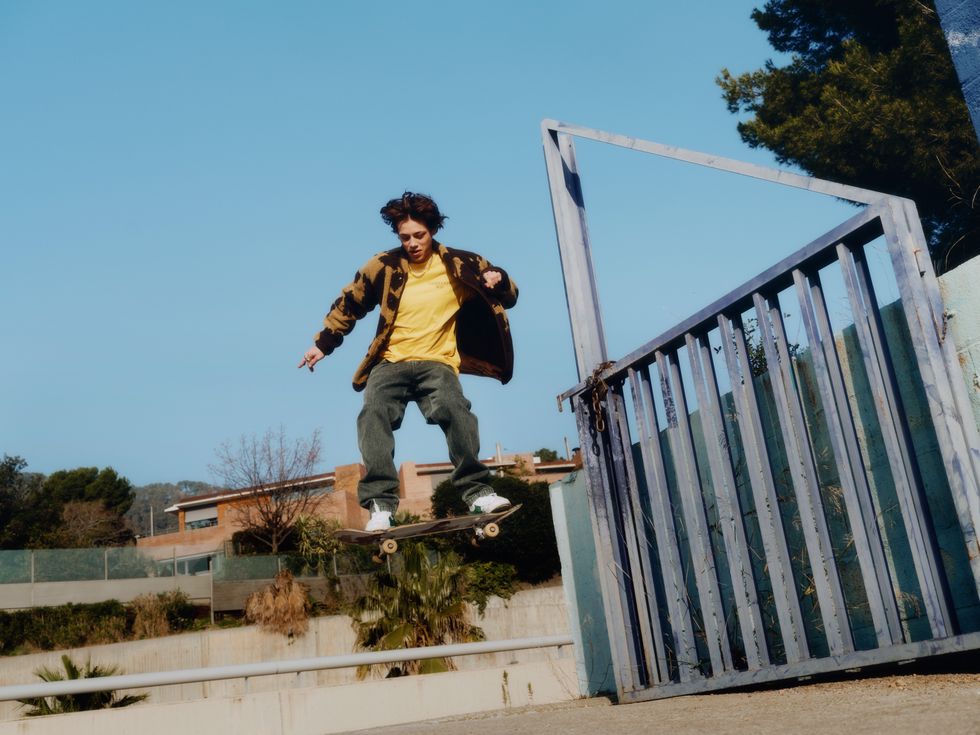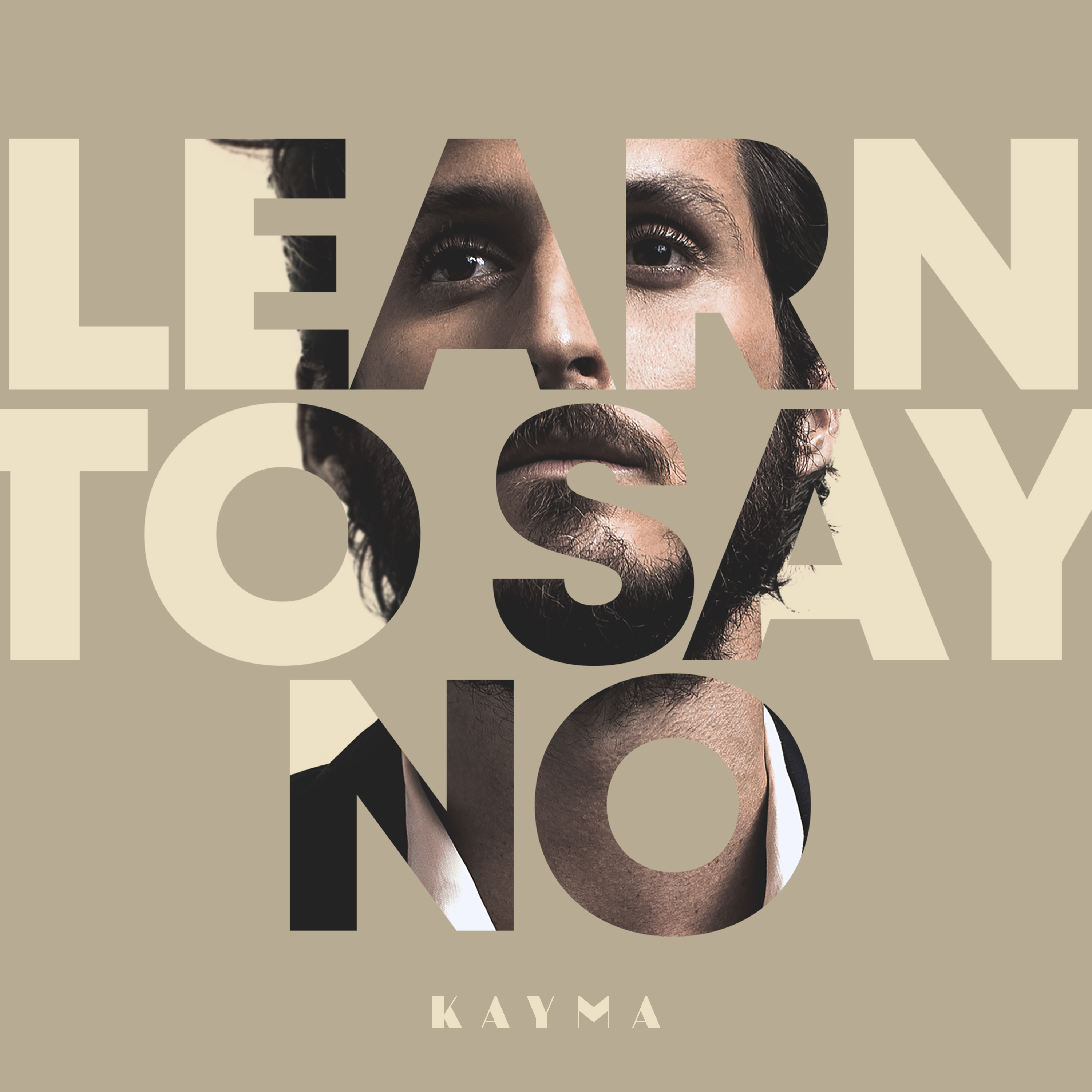A Tbilisi, un’effervescente scena drag sta sbocciando nelle stanze sul retro e negli scantinati dei nightclub e dei bar della città. Al Bassiani, al Cafe Gallery, e l’originale gay bar Success, la comunità LGBTQ + si ritrova sulla pista da ballo, mentre drag queen, DJ e ballerini mettono in scena spettacoli sovversivi e inventati al momento che fanno brillare il talento e la creatività di una nuova generazione di georgiani queer.
Comfort Zone è l’ultimo cortometraggio del regista parigino Jordan Blady. Esplorando la vivace comunità LGBTQ+ di Tbilisi, in Georgia, il documentario posa l’obiettivo su uno degli artisti più brillanti di Tbilisi,
l’attivista e performer Matt Shally. e mette in evidenza le sfide affrontate dalla comunità queer della città.
Il film mette in scena anche la resilienza della comunità queer che nonostante la minaccia e gli attacchi omofobici degli ultimi anni, ha rifiutato di rinunciare ad esistere e ad avere una voce e un posto nella società georgiana.
Sebbene oggi l’arte del drag sia quasi diventata un fenomeno mainstream, infatti, in molti paesi gli artisti queer e le comunità a cui appartengono devono affrontare il giudizio, la persecuzione e talvolta persino la violenza da parte dei membri più conservatori della società.
Con Comfrot Zone ci immergiamo in un viaggio che è sia corale che personale, e nel percorso di Matt, che lo porta ad accettare sé stesso; prima nei panni del suo alter ego drag queen Victoria Slutyna e poi come il suo vero sé, Matt in a Dress.
Un viaggio alla ricerca della nostra comfort zone che ci insegna anche come l’arte può aiutarci ad accettare le nostre verità.
Abbiamo intervistato Jordan e Matt per saperne un po’ di più, qui sotto, trovate tutto quello che ci hanno detto!

Hi Jordan, what prompted you to make a documentary about the Lgbtq + Georgian community? And how did you approach the story of Matt Shally?
Matt and I had become friends a year before while I was making another project in Tbilisi. Over the next year we developed the premise together as I was inspired by Matt and his stories. Since it was Matt that I was documenting, the LGBTQ+ community in Georgia naturally became part of the story.
Jordan, cosa ti ha spinto a realizzare un documentario sulla comunità Lgbtq + georgiana? Come ti sei avvicinato alla storia di Matt Shally? Matt ed io eravamo diventati amici un anno prima mentre stavo realizzando un altro progetto a Tbilisi. L’anno successivo abbiamo sviluppato la premessa insieme, poiché mi sono ispirato a Matt e alle sue storie. Dato che stavo documentando Matt, la comunità LGBTQ + in Georgia è diventata poi naturalmente parte della storia.
Despite the homophobic threat and attacks of recent years, the LGBTQ+ community of Tbilisi resists and claims its place in Georgian society. Comfort zone tells more about this courage or more on how art can help people (especially young people) to accept their own “truth”?
JORDAN: I think it’s clear from the film that the younger generation of Tbilisi is tired discrimination and want to have their voices heard. I wouldn’t say the message of the film is necessarily one or the other. The narrative certainly rests on the shoulders of Matt’s courage, as hopefully emphasizes the importance of being yourself.
MATT: Comfort Zone tells us about all of the above. It stands against homophobia, this bullshit all around us. Mostly in Georgia, but literally everywhere. I had the chance to raise my voice with this documentary. I had the opportunity to take this step, which was traumatic. It was not safe to do this out loud and show my face. I work in the art industry and I wanted to use this opportunity to help others. To help how we are accepted here and everywhere. And of course in the art industry. It’s very important for me and my fellow queer artists to be loud. They are all coming together and doing all sorts of different kinds of art. Really amazing and I’m super appreciative of what they do. So yes, this project was mainly about helping one another out, about our art and to support us in being who we want to be. But it’s also about what life is like in Tbilisi and what it’s like to be queer in Tbilisi. It’s about our community and our right to live and exist.
Nonostante gli attacchi degli ultimi anni, la comunità LGBTQ + di Tbilisi resiste e rivendica il suo posto nella società georgiana. Comfort zone racconta di più questo coraggio o di più, il modo in cui l’arte può aiutare le persone (soprattutto i giovani) ad accettare la propria “verità”? JORDAN: Penso che dal film sia chiaro che la giovane generazione di Tbilisi è stanca della discriminazione e vuole che la propria voce venga ascoltata. Non direi che il messaggio del film sia necessariamente l’uno o l’altro. La narrazione si basa certamente sulle spalle del coraggio di Matt, poiché si spera sottolinea l’importanza di essere se stessi. MATT: Comfort Zone ci parla di tutte e due le cose. È contro l’omofobia e io ho avuto la possibilità di alzare la voce e di farmi ascoltare con questo documentario. Ho avuto l’opportunità di fare un passo in avanti ed è stato traumatico. Non era sicuro farlo ad alta voce e mostrare la mia faccia. Lavoro nell’industria artistica e volevo sfruttare questa opportunità per aiutare gli altri. Per aiutare come siamo accettati qui e ovunque. E ovviamente nell’industria artistica. È molto importante per me e per i miei colleghi artisti queer essere rumorosi. Si stanno tutti riunendo per realizzare ogni sorta di arte. E’ fantastico e apprezzo molto quello che fanno. Quindi sì, questo progetto era principalmente sull’aiutarci a vicenda, sulla nostra arte e sul sostenerci nell’essere ciò che vogliamo essere. Ma riguarda anche com’è la vita a Tbilisi e com’è essere queer a Tbilisi. Riguarda la nostra comunità e il nostro diritto di vivere ed esistere.
The film focuses on one of Tbilisi’s brightest artists and highlights the challenges he had to face, could you tell us who is Matt Shally today? MATT: Tbilisi has so many amazings artists. And now we have come together, telling our stories through our art. It’s not about pretty art; it’s about having our voice heard louder and stronger. Matt Shally is my stage name. Georgian names are kind of difficult to pronounce for non-Georgians. When I was working internationally, it was often difficult for others to say my name properly. So I decided to go by Matt Shally. It’s who I am, even though some people think I’m hiding under this name. I’m an actor, a performer and I want to use my art to share what I think is right. Behind the art there’s a person who’s not accepted, like many other artists in the community. I just want to say that we are here and that we are doing an amazing job. I’m just a regular human being doing what I love. I love performing in drag and it really helped with everything. But first I consider myself to be an actor. Even though I will never say no to performances, as I do love to feel the crowd.JORDAN: I couldn’t begin to tell you who Matt Shally is, but in regards to the film, what I focused on was his unapologetic attitude towards being himself. This is something I admire tremendously. I know that he’s a person that lives his life the way he feels like living it and I love that about him.
Il film si concentra su uno degli artisti più brillanti di Tbilisi e mette in evidenza le sfide che ha dovuto affrontare, puoi dirci chi è Matt Shally oggi? MATT: Tbilisi ha così tanti artisti sorprendenti. E ora che ci siamo riuniti, raccontando le nostre storie attraverso la nostra arte. Non si tratta di bella arte; si tratta di far sentire la nostra voce sempre più forte. Matt Shally è il mio nome d’arte. I nomi georgiani sono un po ‘difficili da pronunciare per i non georgiani. Quando lavoravo a livello internazionale, era spesso difficile per gli altri pronunciare correttamente il mio nome. Quindi ho deciso di passare da Matt Shally. È quello che sono, anche se alcune persone pensano che mi stia nascondendo sotto questo nome. Sono un attore, un performer e voglio usare la mia arte per condividere ciò che penso sia giusto. Dietro l’arte c’è una persona che non è accettata, come molti altri artisti nella comunità. Voglio solo dire che siamo qui e che stiamo facendo un ottimo lavoro. Sono solo un normale essere umano che fa ciò che ama. Adoro esibirmi in drag e mi ha davvero aiutato in tutto. Ma prima di tutto mi considero un attore. Anche se non dirò mai di no alle esibizioni, perché amo sentire la folla. JORDAN: Per quanto riguarda il film, quello su cui mi sono concentrato è stato il suo atteggiamento impenitente nei confronti di se stesso. Questo è qualcosa che ammiro moltissimo. So che è una persona che vive la sua vita nel modo in cui sente di viverla e questo mi piace.
What does it mean that in Georgia there is “a conservative jungle that combines love and hate”? How do you live in this jungle?
JORDAN: I really liked this quote. To me it meant that Tbilisi has a chaotic culture with a conservative tilt (especially with Eastern Orthodox values) which contribute to a climate where people get upset about things like sexuality, but are still proud to be Georgian.
MATT: When I talk about hate, I refer to the fact that mostly people don’t know what they are hating. They are just saying that something isn’t right, but they don’t know what. They don’t have the knowledge, they don’t want to see or understand. They are just seeing something as different and immediately attacking. But there’s love too. I was born here, I have grown up here. I have so many family members, friends and artists. I love Georgia. There’s so much love here. But it’s true that there are so many heartbreaking situations. Queer people being thrown out of their homes or killed. Also, if you come out on national TV, you are immediately cancelled. But they don’t understand that this isn’t a choice. This is who we are. And understanding this is very complicated for them. I just want them to see how much beauty they are missing out on and hating.
Cosa significa che in Georgia c’è “una giungla conservatrice che unisce amore e odio”? Come si vive in questa giungla? JORDAN: Mi è piaciuta molto questa citazione. Per me significa che Tbilisi ha una cultura caotica con un’inclinazione conservatrice (specialmente con i valori ortodossi orientali) che contribuisce a un clima in cui le persone si arrabbiano per cose come la sessualità, ma sono comunque orgogliose di essere georgiane. MATT: Quando parlo di odio, mi riferisco al fatto che per lo più le persone non sanno cosa stanno odiando. Dicono solo che qualcosa non va, ma non sanno cosa. Non hanno la conoscenza, non vogliono vedere o capire. Stanno solo vedendo qualcosa di diverso e immediatamente lo attaccano. Ma c’è anche l’amore. Sono nato qui, sono cresciuto qui. Ho così tanti membri della famiglia, amici e artisti qui. Amo la Georgia. C’è così tanto amore. Ma è vero che ci sono anche tante situazioni strazianti. Persone queer cacciate di casa o uccise. Inoltre, se esci sulla TV nazionale, vieni immediatamente cancellato. Ma non capiscono che questa non è una scelta. Questo è chi siamo. E capire questo è molto complicato per loro. Vorrei solo che loro vedessero quanta bellezza si perdono odiando.
Matt, Have you ever feared for your physical safety? Were you present in the clashes of 2013?
Of course. I’ve been scared because of the jeans I wear, because of my shoes, because of how I look. When I was younger I looked so androgenous people couldn’t figure out whether I was a boy or a girl. I haven’t been beaten in the street, but I’ve had some physical situations. I’ve had comments in the street, waiting for something to happen. I don’t think members of our community can walk out super safely. Mentally or physically. With regard to the clashes of 2013, I was not there as I was very young. When I saw on TV the hell that was happening, I was horrified by what was going on. It was a tragedy, even words can’t explain it.
Matt, hai mai temuto per la tua sicurezza fisica? Eri presente agli scontri del 2013? Ovviamente. Ho avuto paura a causa dei jeans che indosso, delle mie scarpe, del mio aspetto. Quando ero più giovane sembravo così androgeno che le persone non riuscivano a capire se fossi un ragazzo o una ragazza. Non sono stato picchiato per strada, ma ho avuto diciamo alcune “colluttazioni”. C’è stato chi ha fatto qualche commento per strada, aspettandosi che succedesse qualcosa. Non credo che i membri della nostra comunità possano uscire in sicurezza. Mentalmente o fisicamente. Riguardo agli scontri del 2013, io non c’ero perché ero giovanissimo. Quando ho visto in TV l’inferno che stava succedendo, sono rimasto inorridito. È stata una tragedia, nemmeno le parole possono spiegarlo.
What kind of reaction did Comfort zone get in Georgia?
JORDAN: From what I understood, Comfort Zone had very positive feedback in Georgia. I know Matt was very happy with the project, as was the ballroom community, which was a tremendous relief.
MATT: I didn’t know how beautiful this was going to be. I was a little scared, but also interested in seeing how people would react to it. No one actually ended up bullying me about the film. They even accepted it and it received some very positive reactions from people. I didn’t expect it. And even those who didn’t like it, didn’t react negatively. No aggression either, which could have happened (it’s happened before). Maybe this is just one step closer to what we want to achieve in Tbilisi, Georgia and everywhere.
Che tipo di reazione ha avuto Comfort zone in Georgia? JORDAN: Da quello che ho capito, Comfort Zone ha avuto un feedback molto positivo in Georgia. So che Matt era molto contento del progetto, così come la comunità di artisti e ballerini, il che è stato un enorme sollievo. MATT: Non sapevo quanto sarebbe stato bello. Ero un po’ spaventato, ma anche interessato a vedere come le persone avrebbero reagito. Nessuno mi ha “bullizzato” per il film. L’hanno persino accettato e ha ricevuto alcune reazioni molto positive dalle persone. Non me l’aspettavo. E anche quelli a cui non è piaciuto, non hanno reagito negativamente. Non si sono nemmeno verificate aggressioni fisiche o verbali, (come è accaduto in passato). Forse questo è solo un passo avanti verso ciò che vogliamo ottenere a Tbilisi, in Georgia e ovunque.
What’s next for the Georgian LGBTQ + community?
MATT: I want to believe that it will be something bright. We will have our education, art and ourselves. We will be able to fight all the bullshit around us and be free. I want to think that and I believe it. When you want something, you have to believe in it.
Quali sono le prospettive per la comunità LGBTQ + georgiana? MATT: Voglio credere che sarà qualcosa di brillante. Avremo la nostra educazione, la nostra arte e noi stessi. Potremo combattere tutte le cazzate intorno a noi ed essere liberi. Lo voglio pensare e ci credo. Quando vuoi qualcosa, devi crederci.






